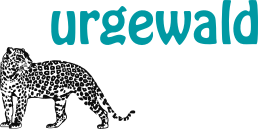Status: Approved
Timeframe: 2018-2024
Area: Indonesia, Mandalika region of Lombok
AIIB Investment Amount: US$ 248.4 million
Total Project Cost: US$ 316.5 million
Co-financier: Government of Indonesia (GoI); Indonesia Tourism Development Corporation (ITDC)
E&S Category: A
Project Details: The project aims to develop sustainable core infrastructure for a new tourism destination in Mandalika, Lombok as part of the “10 New Balis” strategy. Focused on Phase I (2019–2023), it includes the construction of essential infrastructure within Mandalika and improvements in nearby communities
Project concerns:
Resettlement
150 households are facing involuntary resettlement. While all land acquisition and resettlement issues were supposed to be settled by 2019, the community believes that land conflicts are not over, citing their experiences with intimidation and coercion tactics and land for which they were not fully compensated.
Living conditions in resettlement areas are poor, with inadequate access to basic necessities like drinking water. The project’s resettlement framework downplays forced displacement and excludes many from compensation by restricting eligibility to formal landowners. Women face increased unpaid care responsibilities and financial strain due to disrupted livelihoods and limited support.
Environmental
Significant environmental impacts, including deforestation, vegetation loss, and dredging, which accelerate erosion, harm biodiversity, and contribute to climate change. These activities have led to declining fish populations and increased natural resource scarcity, disproportionately affecting local communities, especially women.
2024 Update
A 2024 civil society case study by INDIES, SERUNI, Gender Action, and IBON (linked below) International highlights worsening gendered and ecological impacts under MUTIP. Women have lost access to farming, fishing, and small-scale trade, leading to deepened debt and unpaid care burdens. The report also documents damage to critical ecosystems like mangroves and paddy fields, with safeguards poorly implemented.
Militarization has increased in project areas, with police and military presence at community meetings and reports of intimidation, especially targeting women and girls. These concerns are echoed in the AIIB Observer which includes an article summarizing these findings and calls for accountability.
Organizations monitoring: Due to the potential risk of reprisal, we are unable to disclose the name of the organizations currently involved in monitoring this particular case.
AIIB interactions to date: In 2021, independent experts from the UN High Commissioner for Human Rights criticized AIIB practices and their lack of due diligence. In a response statement, the AIIB denies any accusations of “coercion, direct use of force and intimidation relating to land acquisition and resettlement”, reiterating their commitment to the Bank’s ESF. In September 2022, the bank once again released a statement responding to the continued displacement of Indigenous communities stating that during their field visit earlier the year, the project was proceeding well, and there was still no evidence of intimidation or coercion.
Further information: AIIB Page; Stiftung Asienhaus; OHCHR; Süddeutsche Zeitung; UN News; Mongabay News; Case study by CSOs; AIIB Observer Volume 3
Last update: 09.07.2025


